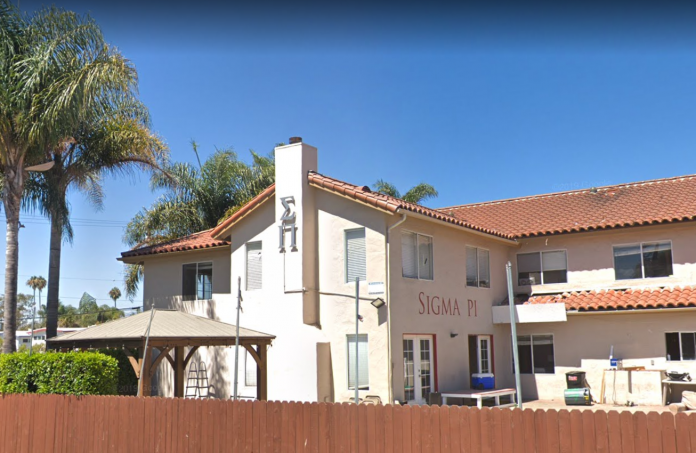Alexandra Wishakowski
Isla Vista Beat Reporter
Associated Students (AS) Students Against Sexual Assault (SASA) recently announced that they have co-authored Assembly Bill 524 (AB 524), also known as the Greek A.C.T. (Accountability, Change, Transparency).
SASA is a nonprofit 501(c)(3) organization “dedicated to the elimination of sexual assault and sexual harassment on the University of California, Santa Barbara, the Santa Barbara City College, the University of California, Santa Cruz campuses and their surrounding communities.”
Assemblymember Freddie Rodriguez, a representative of the 52nd state district, reintroduced the legislation to the CA State Assembly to begin passing the bill. Previously, the legislation was introduced to the Higher Education Committee and passed as AB 1155 with plans to add amendments.
The amendments included in state bill AB 524 require higher-education institutions to publicly report information on outcomes of allegations of misconduct and the number of citations and disciplinary actions relating to sexual assault incidents regarding campus-affiliated sororities and fraternities.
Greek organizations must also include information on the number of active and new members, the average GPA of all members, charitable fundraising and volunteer hours, and the current conduct and recognition status of the organization.
“With more transparency, students and families can make informed decisions about the social and professional organizations they choose to invest time, resources, and personal safety into joining,” said Rodriguez in a press release.
AB 524 is also co-sponsored by the UC Student Association, an official organization that advocates and takes direct action on behalf of all UC students.
“The amendments included in state bill AB 524 require higher-education institutions to publicly report information on outcomes of allegations of misconduct and the number of citations and disciplinary actions relating to sexual assault incidents regarding campus-affiliated sororities and fraternities.”
Both UCSA and SASA are proudly sponsoring the Greek A.C.T. in hopes that transparency from fraternities and sororities will mitigate the persistent issues of hazing, sexual violence, and excessive drinking. The culture perpetuated by Greek life through these actions has led to harmful – even lethal – repercussions for the students affected.
While sororities and fraternities offer a sense of community for students, Greek organizations have a history of a lack of transparency and accountability regarding sexual violence and alcohol abuse.
At UCSB, three fraternities and one sorority have lost their recognition status since 2014 due to hazing and alcohol-related incidents against the university’s policy.
At UC Santa Barbara (UCSB) recently saw several instances of sexual assault during the beginning of the fall quarter in 2019. In October of that year, two attempted assaults at fraternity Sigma Pi occurred within the same night. After reports to the president of Sigma Pi, a second-year student’s membership was revoked.
“While sororities and fraternities offer a sense of community for students, Greek organizations have a history of a lack of transparency and accountability regarding sexual violence and alcohol abuse.”
Many UCSB students expressed frustration that the perpetrator’s name would be kept confidential due to protections offered by Title IX, which keep the perpetrator’s identity private in order to protect the survivor’s identity.
Within the same month, a timely warning released by UCSB Alerts detailed two incidents of date rape drugs at an unnamed fraternity party taking place two days later. The e-mail reported that the university administration had additional information that there may have been more incidents of “incapacitating agents” at other parties hosted by fraternities.
Later, the UCSB Police Department released another timely warning about a rape occurring at the Sigma Pi fraternity house on Oct. 26. While details about the suspect’s physical description were shared with the public, there was once again a lack of transparency regarding the perpetrator.
The actions of education and suspension enacted by the university, the Interfraternity Council, and the fraternity’s national headquarters during the investigation seem, to many community members, to be a temporary solution to rape culture on college campuses. For instance, UCSB’s Sigma Pi fraternity is still active and advertising spring recruitment events on social media along with other fraternities who may have been involved in previous incidents.
SASA continues to work with Assemblymember Freddie Rodriguez on the passage of AB 524 and will soon release further information on their website and social media for how the community can help to enact the bill.
UCSB students wishing to discuss an instance of sexual assault or interpersonal violence may access confidential survivor resources through UCSB’s Campus Advocacy, Resources, and Education (CARE).











